Since we're doing report cards...what the heck, I'll thrown in my two cents about the management.
Cashman spent $50 million on Donaldduckinson, an old former star who's aging fast. Hal let him.
Cashman swung a deal with Jeter to take Stanton, at, what, 27 million a year forever? And Hal went with it.
Cashman signed Hicks to a very long-term contract for a LOT of money, given the player. Hal signs the checks. (See also: Damon, Johnny)
Cashman must have wanted Donalduckinson badly, because he put IKF at short when he's actually an excellent third baseman. But, OK with Hal.
Cole got a boatload of money, and Hal said "fine." In fact, Brain has signed "star" pitchers over and over and probably has the worst record of picking busts than any active GM (not that Cole is one, but, "ace?"). Somehow he always passes on the (equally expensive) ones who could've really helped. Funny, that.
Chapman, another big payday, even with him being as old as he was at the time. Hal blessed that, too.
Gallo? Expensive, especially for a guy who can't hit. Especially when you have candidates in AAA who might have filled the bill. Hal didn't seem fazed.
Cashman spent the money on Rizzo, too, which I'm in favor of, and which Hal OKed.
It took Cashman a couple extra years, at least, to give up on Sanchez. So I don't consider him a genius for getting Trevino. And he's kept Gallo too long. Plus, I don't think even a dimwit like Boone would give as much playing time to Gallo as he has--unless Cashman was telling him to.
Basically, bottom line, Hal is cheap relative to his fortune and the team's revenue. But he's not exactly cheap. He's let Cashman sign guys for a lot of money, or take on big salaries, or trade low-pay prospects for big money, generally washed-up vets.
I'm not a fan of Hal (or Boone), but I do think Cashman is the rot in this organization. He's been consistently terrible in his use of money, and the few cheapie jewels he's turned up from the slagheap in no way make up for his general incompetence. In both managing the payroll and managing the farm system.
It's just possible that we could all be fairly happy with Hal and Boone if they didn't have the other twerp making decisions for them. But, as the media has ordained Otani as the new Babe Ruth, the media has ordained Cashman as Cooperstown-bound.
They're not journalists. They're mouthpieces.












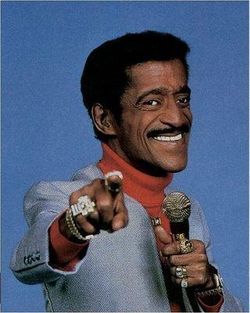
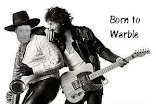


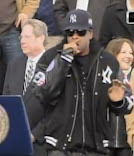












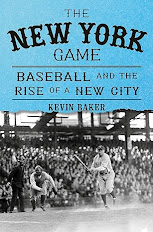











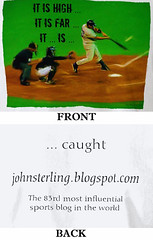



13 comments:
Good analysis!
Very, very good points, JM.
I have another friend who emphasizes the same. And don't forget the huge contract Coops shelled out to Sevvy—AFTER he had a career-threatening injury.
Buuuut—why would you keep on, and even publicly compliment, this ass in charge of your family business when, year after year, he shows he can't it done?
I mean, if HAL really wanted to maximize the use of his money, why would you NOT fire the self-aggrandizing little twit, and hire some great baseball men away from St. L., or Oak., or TB?
The answer—unless Coops has just hyp-mo-tized him, as Letterman used to say—is that HAL is afraid real baseball men would use all that money to build him a real dynasty...with all the tsuris and risk that entails.
But see, JM, if Prince Hal keeps patting Cashman on the ass and keeps saying "Good job, you've earned your keep ... and you've outdone yourself for a raise", then what does that say about Hal? The more I think about it, the more I think it's all about Hal.
Have you noticed that the Yankees always seem to bring in the wrong players? Yet they refuse to bring up any young players and develop them? The main driving force in making out the roster and the lineup seems to be the amount of money paid to each player. You can even say that one of the reasons that they rest Judge is to reduce his numbers, in order to save money on his potential big contract. Have you noticed that they rarely, if ever, make any trades? With only dumpster diving, every so often?
I don't consider myself a paranoid conspiracy theorist, but the situation for the past dozen years sure seems like Hal wants to keep the status quo. Every player move seems to be evaluated for its impact on tax and finances. And they are designed to ensure that the team will NOT win.
They will sign some big money free agents, because that keeps payroll high and expenses negate the incoming revenues, thereby reducing profits for tax purposes. But they won't promote low salary minor leaguers, because (1) they don't want to pay them major league mininums and (2) it would make short term profits skyrocket, due to lower expenses.
Winning would exponentially increase revenues. Profits would increase a lot too. They don't want that. It would upset their accountants, destroy their tax strategies.
The reason that I think all this is that no one is so stupid that they'd keep up this charade. I don't think Hal is stupid at all. We don't give him enough credit for (financial) brainpower. Perhaps I shouldn't call him Prince Hal anymore. He's a lot more like the malicious supercomputer in 2001: A Space Odyssey. He's got it all figured out.
Thanks, gents. Hoss, it is a little bit of a mystery. Hal doesn't really seem incredibly interested in baseball, on a practical level. But even on a business level, he doesn't seem to get the basic lesson of his father: spend a fortune, sign the best, because if you can win it all, the franchise is that much more valuable. More merch, more money from the visiting team cut on the road, more more more. It's a head scratcher.
Hammer, good points. I just don't get it. More success means more money and more taxes, but still more money even after taxes. Maybe I'm just not that bright.
I don't think he's trying to maximize profits or maximize franchise value. He's trying to reduce taxes. Not making too much money could be a goal. Of course, we'll never know unless they give us a seat at their financial pow wows.
Not making a profit is a goal of many big corporations and also other sports franchise owners. Witness what went on with K.C. for a long time. Their owner claiming that he was "losing money" every year. Which, on paper, he probably was telling the truth. What he'd neglected to tell, of course, is that losing money was purpose driven so that he didn't have to pay taxes.
Amazon gets away with paying zero federal income tax (I've heard). How could they do that? Keep buying up land and warehouses, keep taking "depreciation" paper losses, hire employees to make sure that revenues don't eclipse expenses.
If you have multiple businesses, the IRS allows you to claim a loss on a business, in order to negate profits from other businesses. You only have to make a profit once every five years, in order to continue the charade. The profit in that fifth year can be minimal, or you can "go for it" that year and try to win the championship. Then you tank and lose money for another four years, in order to offset the profits from all your other businesses. Your tax accountants make sure that you pay no income taxes. And you give them a slap on the ass and say "good job, keep up the good work".
Hence my constantly spelling it, HAL, which is what the 2001 name was, an acronym.
But who can say what goes on with the mind of HAL. Could be taxes—I don't know enough about taxes to say, one way or the other.
Again, I think it is mostly to minimize risk.
Yes, IF HAL had signed any of those big free agents in the past—and/or developed a good farm system—he might very well have developed a super dynasty, that would have greatly increased revenues...
...But by how much more? I really think the Stadium capacity is key. The Yankees now automatically forgo about 1 million fans a year, with their smaller Stadium.
That's a helluva lot of revenue. But HAL doesn't care. He feels he can make it up with luxury and corporate boxes. He could be right, I dunno.
But the point is, barring a complete collapse of the team, the high-end boxes are a much safer bet for his revenue. Or, maybe he fears that, if he reached the crazy heights in money that a super-dynasty would bring today, the other owners would turn over the whole arrangement as it stand, and demand full revenue sharing.
But in any case, building a great dynasty means guys coming back and demanding huge paydays after winning year in, and year out, with the risk that some day you may get stuck with a bunch of overaged, overpaid, unproductive players.
As I said, RISK. But this way...
Should have been Hank all along. Hal doesn’t even look like George.
...When Aaron Judge and his agent come in over the winter to negotiate a contract, HAL can say, "Hey, what have you ever won? Oh, and I hear The Great Ohtani is going to be the MVP."
Sad, but, I fear, true.
@Hoss, yep, it's looking like the Yanks won't win anything this year & Judge is not going to have a particularly good second half either. That equals win/win for HAL, our resident supercalculator. HAL won't need to pay Judge 500 million to resign him. Maybe 250 would it.
Every time they rest Judge or bat him in the leadoff spot, it seems to me that they're doing their best to make sure that he doesn't put up big numbers. When Judge was looking like Mantle or Maris earlier this year, HAL & Co. must have been getting angina. They can relax now ... the team is collapsing and Judge is slumping terribly.
@Hoss "minimizing risk", yeah, you may have it there. That could be it. We all know rich people love to manage risk. They're in it for the long haul. They don't want to go too high or too low. They want to keep the status quo. Life expectancy today is almost up to 120. Think big insurance companies, big asset management firms. They're all about minimizing risk too.
For HAL, the value of the franchise is meaningless if he's never going to sell. So maybe he was telling the truth when he said he'll never sell. He just wants to maintain the sweet spot, as you say.
And if it weren't for Judge, this team's sweet spot would be the large brown stain on its bottom.
Post a Comment